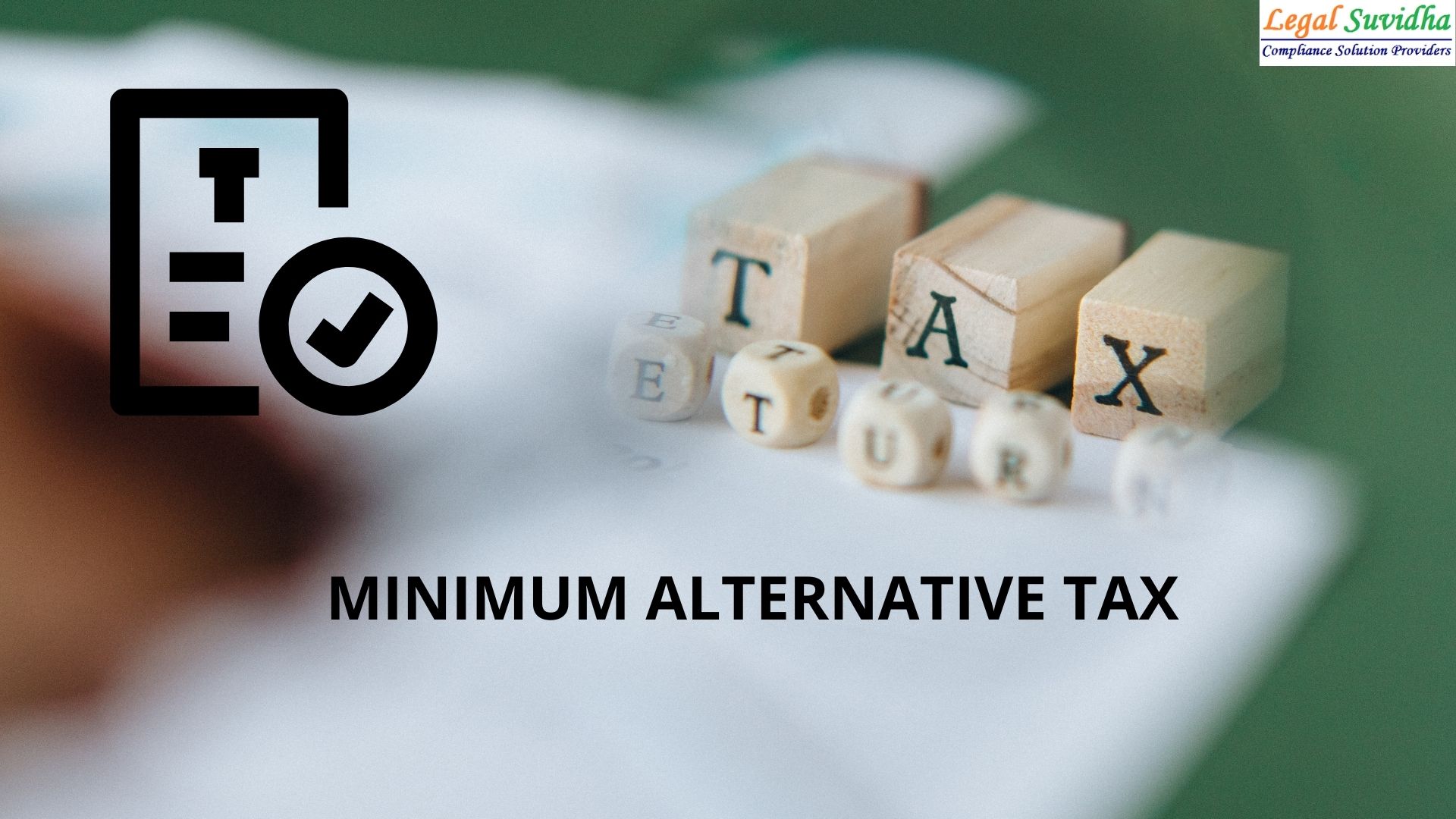ALL YOU NEED TO KNOW ABOUT ALTERNATIVE MINIMUM TAX
In order to encourage investment in various industries, the Government has introduced various profit linked incentives and deductions. Taxpayers who are eligible to claim such dedcutions/incentives pay tax zero even though if they have capacity to pay normal tax. Considering the welfare of the Country, Government has to consistently needs to have a regular inflow of tax.
What is Minimum Alternative Tax?
Alternate Minimum Tax is a minimum tax which is imposed on alternative to normal tax. AMT is chargeable at the rate of 18.5% plus surcharge and cess which is applicable. AMT is a tax which is imposed on ‘Adjusted Total Income’ for Financial Year where tax which is on normal tax is less than AMT on Adjusted Total Income. AMT shall be paid by tax payer on whom it apply irrespective of normal tax.
APPLICABILITY OF ALTERNATIVE MINIMUM TAX:
This idea of Minimum tax was initiated for Companies and it was made applicable to non-corporate taxpayers. After that Finance Act, 2011 launched Alternate Minimum Tax on Limited Liability Partnership and then it was amended in Finance Act, 2012
AMT applies to following taxpayers:
All non-corporate taxpayers;
Taxpayer who claims deduction under following:
Chapter VI-A under Section 80H to 80RRB which is provided regarding profit and gains of industries which is specified as housing projects, export business, hotel business, infrastructure development. Small scale business etc. Though, deduction which is under section 80P that provides deduction for cooperative society is not the part of this for the purpose.
Deduction under Section 35AD.
Deduction under Section 10AA
EXEMPTIONS FOR ALTERNATIVE MINIMUM TAX:
Provision of AMT is not applicable to an individual, Hindu Undivided Family, Artificial Judicial Person, Body of Individual, Association of Person whose Adjusted Total Income is not exceeding Rs 20, 00, 000. Consequently, the exemption of monetary threshold of above limit is not applicable for LLP, non-corporate taxpayers and partnership firms.
CALCULATION OF ADJUSTED TOTAL INCOME:
| Particulars | Amount |
| Taxable income (A) | XXX |
| Add: Deduction claimed if any under Chapter VI-A from 80H to 80RRB except 80P (B) | XXX |
| Deduction claimed if any under Section 10AA (C) | XXX |
| Deduction claimed if any under Section 35AD reduced by regular depreciation allowed (D) | XXXXX |
| Adjusted total income (E) = (A)+(B)+(C)+(D) | XXXXX |
| AMT – 18.5% of (E) | XXXX |







